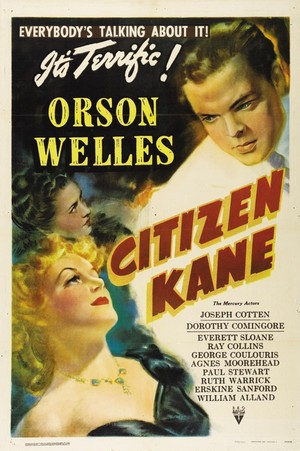
Citizen Kane (1941)

Raiting: ![]() 8,2 /10
8,2 /10
Genre: Drama
Director: Orson Welles
Stars: Orson Welles, Joseph Cotten and Agnes Moorehead
Country: United States
Release date: 17 April 1941
Length: 119 minutes


Raiting: ![]() 8,2 /10
8,2 /10
Genre: Drama
Director: Orson Welles
Stars: Orson Welles, Joseph Cotten and Agnes Moorehead
Country: United States
Release date: 17 April 1941
Length: 119 minutes